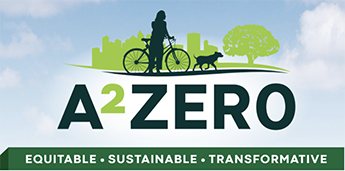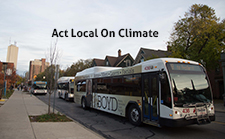Beyond Carbon Neutral Seminar Series: Truths We Must Tell Ourselves to Manage Climate Change
Speaker: Rob Socolow, Princeton University
Abstract: The extraordinary progress recently in wind and solar power, as well as batteries, brings into view an alternative future for the global energy system, with little use of fossil fuel. Within the energy analysis community, some researchers are tempted to declare: "Mission Accomplished."
Whoa! It is one thing to view a future and another to realize it. Right now, the developing world is industrializing on the backs of new coal and natural gas power plants. If all of the world’s current fossil fuel power plants were to have a 40-year lifetime, these plants would emit 350 billion tons of CO2 to the atmosphere before they retired, and new construction has made this measure climb 4% per year. Comparably important global “committed emissions,” largely ignored today, are embedded in the complexes of hi-rise apartment buildings sprouting in the world’s expanding cities. By comparison with providing viable alternatives to these resilient high-carbon patterns of development, how high a priority is CO2 removal from the atmosphere? Has its time really come?
Closely related issues to be addressed in this talk include the intermittency of wind and solar power; the need for greater effort to understand technical and social limits on how fast the energy system can change; and the dangers inherent in every “solution” to climate change, if implemented casually.
I see a new academic domain, Destiny Studies, emerging. It will explore humanity’s collective future and ask what "accomplishing the mission" ought to require.
Bio: Robert Socolow is professor emeritus and a full-time member of the senior research staff in the Department of Mechanical and Aerospace Engineering at Princeton University. In his research he seeks new conceptual decade-scale frameworks that are useful for climate change policy. With colleagues he introduced “stabilization wedges,” “one billion high emitters,” “committed emissions,” and “destiny studies.” He is engaged with multi-disciplinary efforts to anticipate key issues associated low-carbon futures, including analyses of energy efficiency in buildings, wind and solar power, nuclear fission and fusion power, CO2 capture and storage from fossil fuels and the air, impacts on the land when biocarbon is priced, and technological “leapfrogging” by developing countries. He is a member of the American Academy of Arts and Sciences, an associate of the National Research Council of the National Academies, a fellow of the American Physical Society, a fellow of the American Association for the Advancement of Science, and the recipient of the Leo Szilard Lectureship Award by the American Physical Society. He earned his Ph.D. from Harvard University in theoretical high energy physics in 1964 and joined the Princeton University faculty in 1971.














